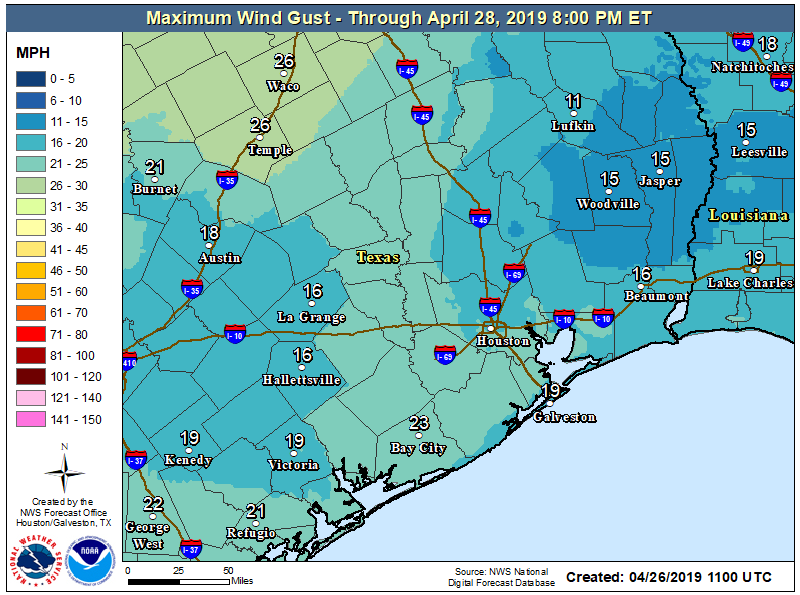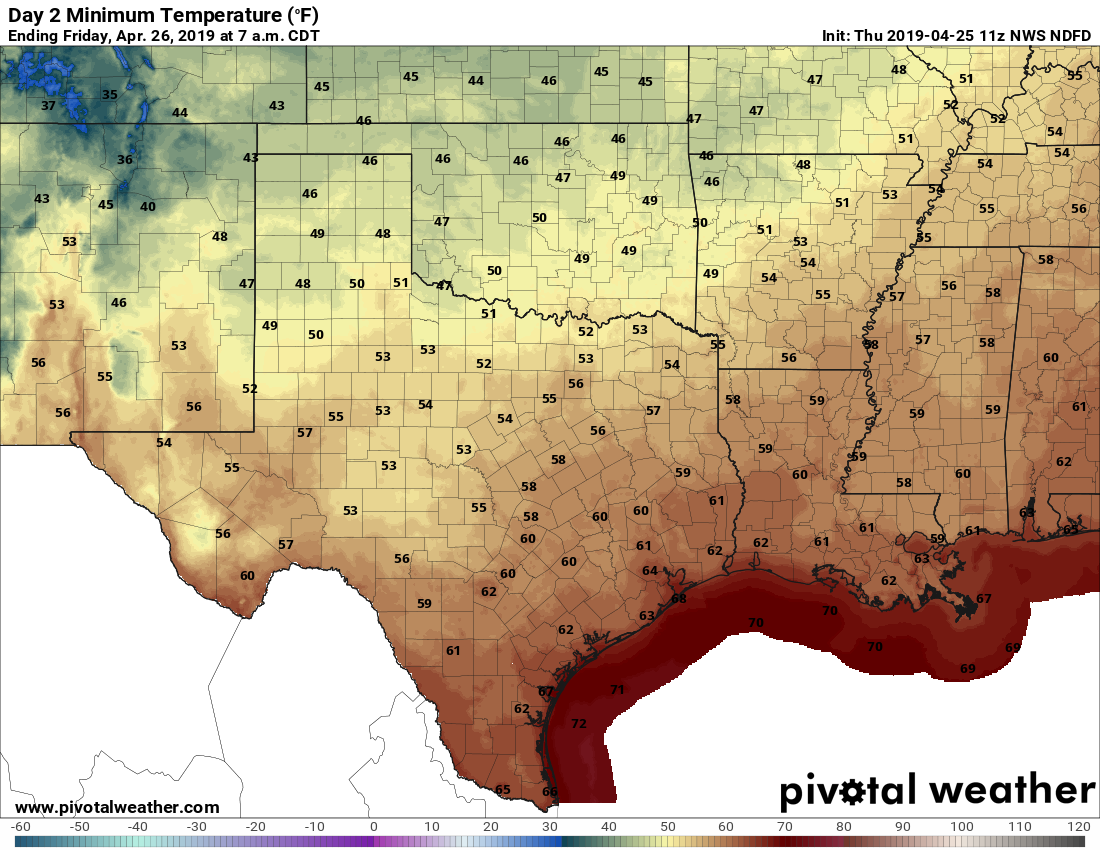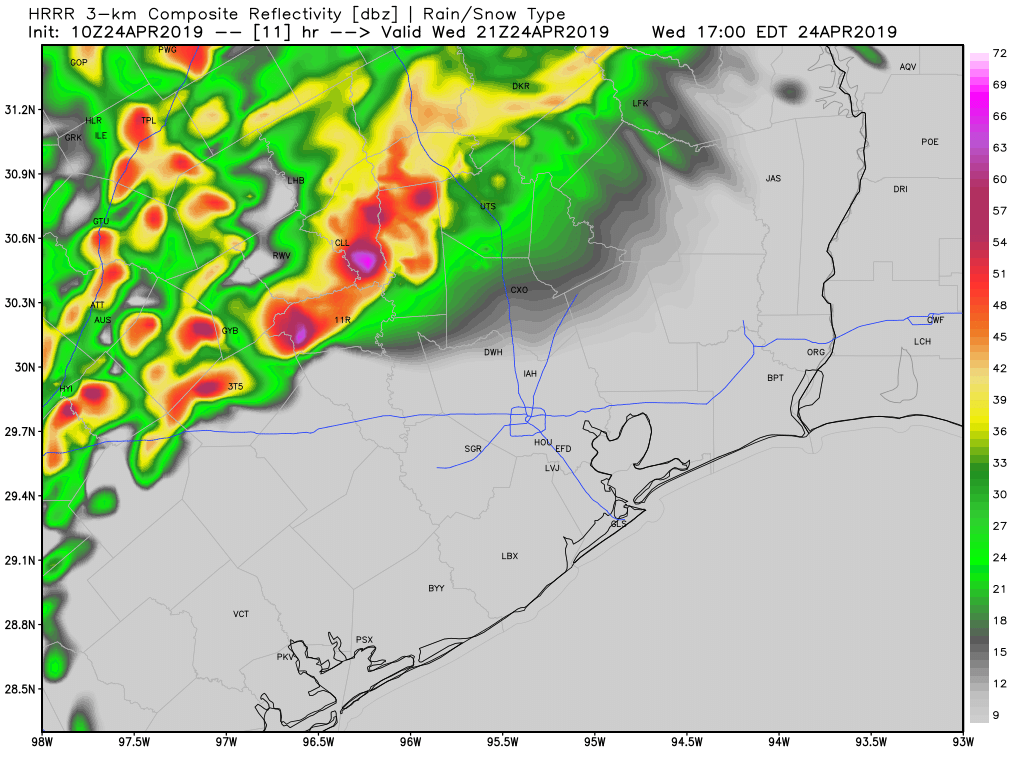It is difficult to quantify a “nice” Spring, but it sure seems as though the last couple of months have been quite pleasant in Houston, Texas. We’ve had a few storms, which is normal for spring, but mostly we’ve seen partly to mostly sunny weather, fairly dry air, and cool but not cold nights.
But now, the party’s over. I’m sorry to report that Spring, 2019, died this weekend. As recently as Sunday morning, lows were in the low- to mid-60s for much of the region, but starting this today we’re going to see a string of mornings in the 70s, with May and then June right around the corner. Spring was 75 days old.

Monday
After a lovely, sunny weekend, we’ll see the return of partly to mostly cloudy skies today, although there still should be enough sunshine to allow high temperatures to push up into the mid-80s. The bigger story will be the return of onshore winds, which may gust up to about 20 mph this afternoon from the south. With muggier air and mostly cloudy skies tonight, low temperatures on Tuesday morning will only fall into the low- to mid-70s for the region.



